1733829009-0/Copy-of-Untitled-(16)1733829009-0.png)
Israeli Prime Minister Benjamin Netanyahu took the witness stand for the first time on Tuesday in his long-running corruption trial, a significant moment in his legal battle that will likely demand his attention both in the courtroom and in Israel’s ongoing war efforts.
Netanyahu, 75, is Israel's longest-serving prime minister, having held power almost uninterrupted since 2009. He is also the first sitting prime minister in Israel to face criminal charges.
"I have been waiting for eight years for this moment to tell the truth," Netanyahu told the three judges overseeing the case. "But I am also a prime minister… I am leading the country through a seven-front war. And I think the two can be done in parallel," he added.
The trial was moved from Jerusalem to an underground courtroom for undisclosed security reasons, located a 15-minute walk from Israel’s defense headquarters.
Before Netanyahu took the stand, his defense lawyer, Amit Hadad, outlined what he sees as major flaws in the investigation, accusing prosecutors of targeting Netanyahu personally rather than investigating a crime.
Hadad claimed that investigators were not focused on uncovering criminal activity but rather on attacking a political figure.
While Netanyahu faces charges of bribery, fraud, and breach of trust, the trial was temporarily delayed due to the ongoing war with Hamas in Gaza. This conflict, which has lasted over a year, led to the postponement of his court appearances. However, judges recently ruled that Netanyahu must begin testifying.
He is now scheduled to testify three times a week despite the ongoing war and mounting international pressures.
Netanyahu was indicted in 2019 on charges related to receiving gifts from wealthy friends and allegedly seeking regulatory favors for media tycoons in exchange for favorable coverage.
He has consistently denied any wrongdoing. In the lead-up to his testimony, Netanyahu revived rhetoric he had used throughout the legal proceedings, calling the investigations a "witch hunt" and accusing law enforcement of undermining democracy. "The real threat to democracy in Israel is not posed by the public's elected representatives, but by some among the law enforcement authorities who refuse to accept the voters' choice and are trying to carry out a coup with rabid political investigations," he stated on Thursday.
Before the war, Netanyahu’s legal troubles had deeply divided the Israeli public, leading to five rounds of elections and widespread political instability. His government’s attempt to curb judicial powers only intensified public polarization.
The surprise Hamas attack on Israel on October 7, 2023, and the subsequent Gaza war shifted national attention away from Netanyahu's trial. However, as the conflict drags on, divisions within the Israeli government have surfaced, with Netanyahu’s cabinet members clashing with the judiciary, including his justice and police ministers.
To further complicate matters, last month, the International Criminal Court (ICC) issued an arrest warrant for Netanyahu and his former defense chief, Yoav Gallant, along with a Hamas leader, accusing them of war crimes related to the Gaza conflict.
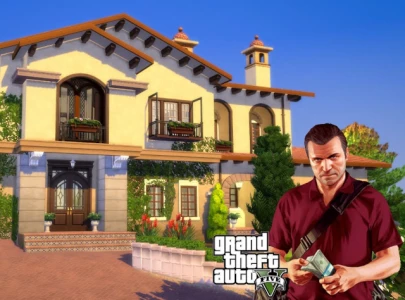


1736599343-0/fizza-(8)1736599343-0-165x106.webp)
1736598692-0/fizza-(7)1736598692-0-165x106.webp)
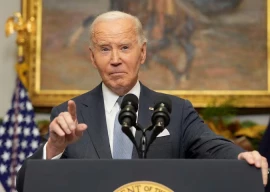
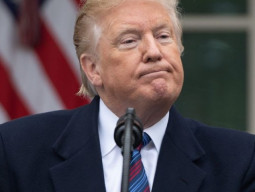

1736605969-0/Copy-of-Untitled-(7)1736605969-0-270x192.webp)


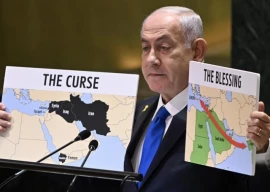
1736508423-0/Express-Tribune---News-Desk-(9)1736508423-0-270x192.webp)
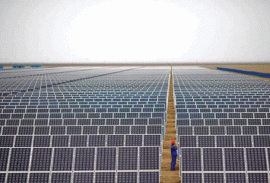
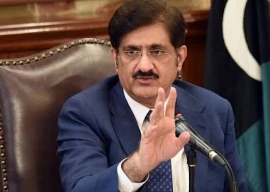
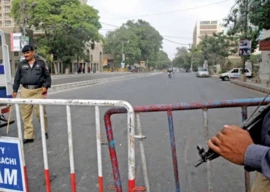







COMMENTS
Comments are moderated and generally will be posted if they are on-topic and not abusive.
For more information, please see our Comments FAQ